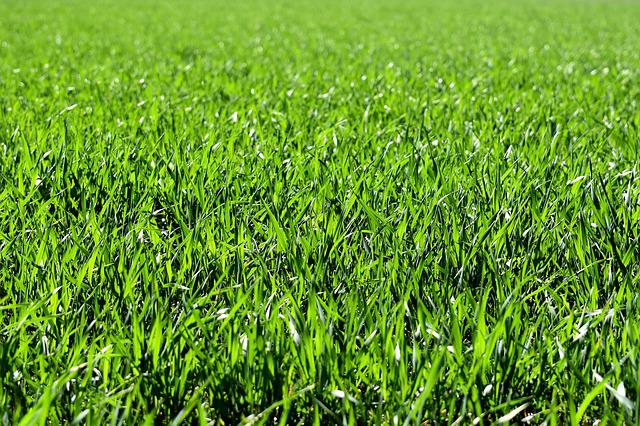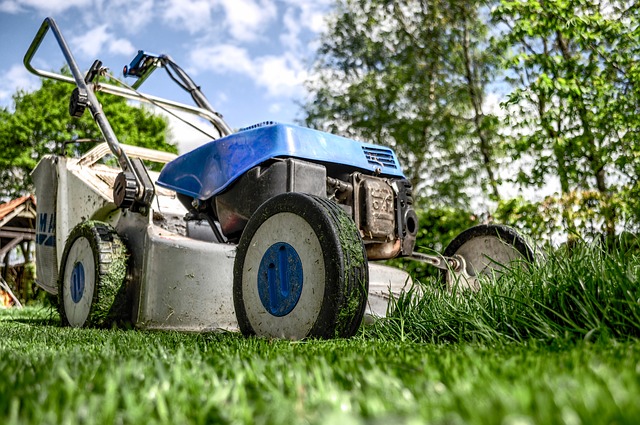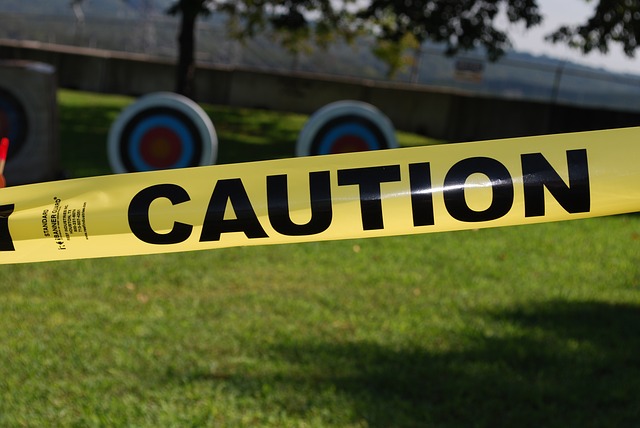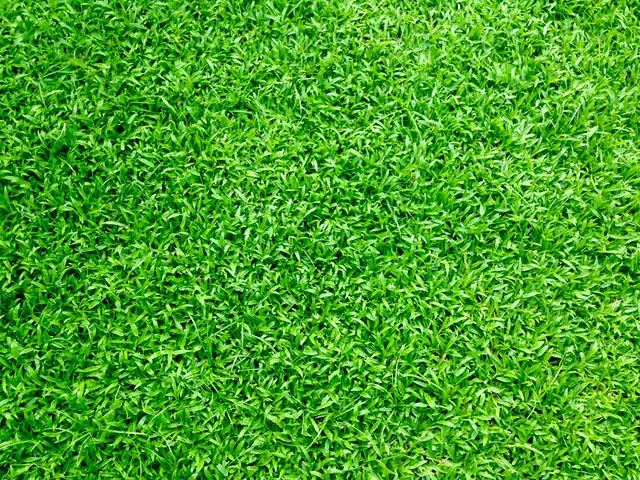Nitrogen is an excellent plant fertilizer, and ammonia is one way to provide this nutrient to your grass. But with other components present, the question is, will ammonia kill grass?
Some types of ammonia will kill grass; it all depends on your concentration, quantity, and type. Stay away from household ammonia (ammonium hydroxide) which can kill your grass and poses a threat even in small amounts. Instead, use ammonium nitrate, the safest and most effective option to nourish your lawn.
Applying too much ammonia to your lawn can also be harmful to the grass, so it’s important to follow the recommended application rates and guidelines to avoid damaging your lawn.
Will Ammonia Kill Grass?

Ammonia will kill grass when it is overused. However, if you dilute the ammonia first, it can make an excellent fertilizer for your garden.
Plants love nitrogen, and ammonia is an excellent source of fertilizer and nitrogen. The problem is that too much nitrogen can overwhelm a plant, and they don’t have a system that can deal with the sheer quantity you expose it to.
How the grass reacts to this treatment depends on the type of ammonia you use, the amount that’s already in the grass, and the amount you add to it. Ammonia is one of the “big three” grass fertilizers; still, too much nitrogen can reduce your plants’ root growth and vitality.
If you don’t make the grass work for its food, they can experience a sense of burnout from trying to process it all. Ammonia is suitable for your grass in the right quantities and is present in many fertilizers.
Commercial fertilizers provide the easiest way to get the dose right, though you can use homemade varieties if willing to put in the work.
Ammonia and Grass Health: Monitoring and Assessing the Impact
Regular monitoring and assessment of your grass’s health are crucial to determine the impact of ammonia application and make necessary adjustments. Understanding how your grass responds to ammonia will help you maintain a healthy and vibrant lawn.
One aspect to monitor is the growth rate of your grass. Excessive ammonia application can lead to rapid growth, but this may come at the expense of root development and overall health. Keep an eye on your grass’s growth patterns and adjust your ammonia application accordingly to promote balanced growth.
Another important factor to assess is the color and appearance of your grass. While ammonia can contribute to greener foliage, excessive amounts can cause discoloration or yellowing. If you notice any adverse effects, such as browning or wilting, it may indicate an imbalance in ammonia levels. Consider reducing the frequency or amount of ammonia applied and monitor the grass’s response.
Additionally, regularly testing your soil’s pH levels can provide valuable insights into the overall health of your lawn. If the pH becomes too acidic or alkaline due to ammonia application, it can hinder nutrient absorption and affect grass growth. Conduct soil tests and adjust the pH as needed to maintain an optimal growing environment.
By actively monitoring and assessing your grass’s health, you can fine-tune your ammonia application to ensure a thriving lawn.
Does Household Ammonia Kill Grass?
Getting the concentration of ammonia correct is an essential factor in lawn care; what’s also important is ensuring that you use the right type of ammonia. Household ammonia or ammonium hydroxide is a cleaning agent rather than a fertilizer. While you can dilute it and pour it over the grass, there is a high chance that this substance will burn the plants in your garden.
Household ammonia is not a good product for lawns and gardens. If you use ammonium hydroxide to kill grass or plants, ensure that you only use it in areas where you don’t want any plants to grow. In addition, keep pets and children away from the treated area and wash any ammonia from your skin to prevent irritation and burns.
Which Type Of Ammonia Is Best For Grass?
The safest type of ammonia to use on your grass is ammonium nitrate; this is easy for plants to absorb and is common in various commercial lawn fertilizers.
Grass absorbs ammonium nitrate easily, so you can overfeed or “burn” the grass if you’re not careful. One way to avoid this is to use an irrigation system after spreading the fertilizer. This helps to spread the mixture out and binds the nitrogen to the soil.
You may think that this sounds somewhat counterintuitive, but studies suggest that using this process can help you make the most of nitrogen fertilizer by normalizing the pH level of the soil.
For seedlings or new sod, a diluted amount of ammonium may be better in the form of ammonium sulfate; alternatively, you can combine a product with phosphate for similar results. In this form, the grass can absorb the product more slowly, and the small dose shouldn’t cause acidity in your soil.
Why Is Ammonia Bad For Your Lawn?

If you misuse ammonia, it can burn the roots and discolor your grass. You should always check your soil’s pH before applying an ammonia solution.
If your pH is lower than seven, your soil is acidic; if it’s above seven, it’s alkaline. To get the most nutrition from the soil, plants should sit in a pH range of six to seven. When you apply diluted ammonia to the soil, it becomes more alkaline in the short term.
But after a few days, as the ammonia converts to nitrate, the solution begins to up the soil’s acidity level. If the soil balance becomes too acidic, then your grass and other plants will have difficulty extracting the nutrients they require.
When you fail to apply the ammonia solution deeply enough, and it sits too close to the grass, you can experience problems with your lawn. To put it into perspective, an ammonia concentration of as little as 3.5 parts per million can be toxic to a lawn, so you need to know the exact concentration and measurements before you apply it.
How Do I Apply Ammonia Solutions Safely?

Any ammonia-based nitrogen solution has the power to cause chemical burns and skin irritation. In addition, if you inhale the product, you may experience irritation of the eyes or throat.
The best way to protect yourself against these hazards is to follow a suitable set of safety precautions. Wear thick gloves and cover any exposed skin. Wear eye protection and a mask to avoid absorbing or inhaling fumes, and mix the product in a well-ventilated area.
In addition, make sure you keep pets and children away from the product and the area you have treated.
The Importance of Proper Application: Dosage and Guidelines
Applying ammonia to your lawn requires careful consideration of dosage and adherence to guidelines to ensure the health and vitality of your grass. Excessive application can be detrimental, so it’s essential to follow recommended dosage instructions.
When applying ammonia, it’s important to evenly distribute it across your lawn. This can be achieved by using a spreader or an irrigation system. Avoid concentrated applications in one area, as it can lead to localized damage. Instead, aim for a uniform coverage to promote balanced growth and nutrient absorption.
Another factor to consider is the timing of application. It’s recommended to apply ammonia during the cooler parts of the day, such as early morning or late afternoon, to minimize evaporation and potential stress on the grass. Additionally, avoid applying ammonia during periods of drought or extreme heat, as it can further stress the grass and increase the risk of damage.
By following proper application guidelines and taking into account dosage, distribution, and timing, you can ensure that ammonia nourishes your grass without causing harm or overexposure.
See another post: What’s The Difference Between Potting Soil And Garden Soil?
Summary
Ammonia has the power to nourish or kill grass depending on the type and quantity that you use. The two most common ammonia forms are nitrate and hydroxide; if you want to nourish your grass, use ammonium nitrate, carefully following instructions and ensuring you apply the correct amount.
In contrast, ammonium hydroxide will burn and kill your grass. This can make an effective weed killer, but you should only use it in areas where you don’t want any plants or grass to grow.
Frequently Asked Questions
What Happens If You Put Ammonia On Grass
Ammonia can be an excellent source of nitrogen for your grass, providing it with the nutrients it needs to grow and flourish.
However, ammonia can kill your grass if you use the wrong type or apply the incorrect quantity. And this might be easier to do than you think, so you must be careful and always follow the exact instructions for application.
Ammonium nitrate is an excellent source of nitrogen. It is present in a wealth of fertilizer blends, while ammonium hydroxide is a household cleanly that will quickly burn your grass and kill your lawn entirely if you apply it without knowing what you’re doing.
Will Straight Ammonia Kill Weeds?
Yes, straight ammonia is a very effective weed killer and an easy way to rid yourself of garden pests.
The problem is that ammonia is a non-selective killer, meaning it will kill off any plant with which it comes into contact. Using ammonia to spray weeds can be a great solution in paving cracks or other remote places.
But, using straight ammonia to kill weeds growing in your grass or plant beds is not a good idea as it will seriously harm your garden.
Can I Pour Ammonia On The Ground?
Ammonia is water-soluble, meaning that it will dissolve in H2O. For this reason, it’s generally safe to dispose of it down your drain. If you do this, add lots of water to dilute any harmful effects.
In addition, never mix ammonia with other cleaners. If you have more than one to dispose of, make sure you do them one at a time and heavily dilute each with a decent quantity of water.

Hey, I’m Lisa and I’ve been an avid gardener for over 30 years. I love writing, talking and living in the garden! Feel free to connect with me on my socials below

